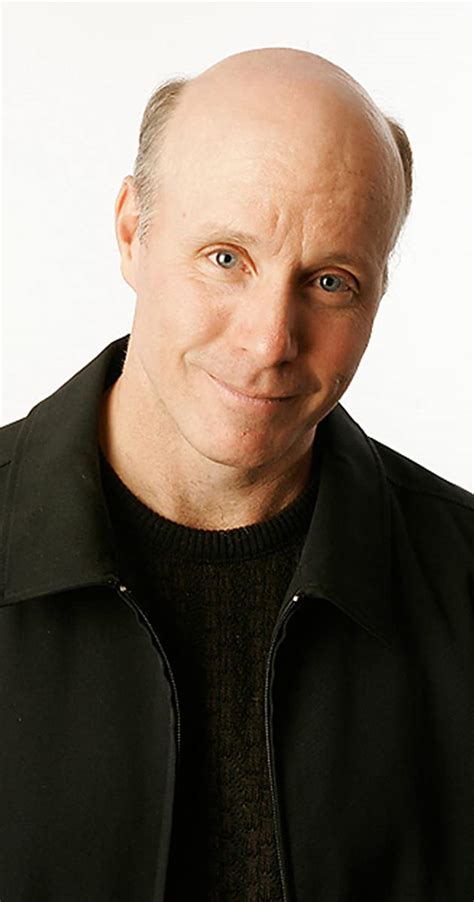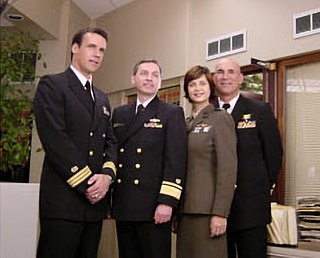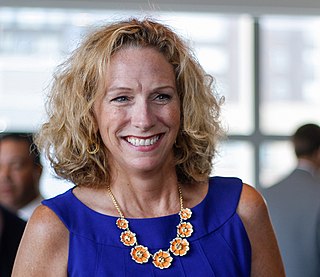A Quote by Brian Kiley
I went to a bookstore the other day. I asked a woman behind the counter where the self-help books were. She said, ‘If I told you, that would defeat the whole purpose.’
Related Quotes
She didn’t understand why it was happening,” he said. “I had to tell her she would die. Her social worker said I had to tell her. I had to tell her she would die, so I told her she was going to heaven. She asked if I would be there, and I said that I would not, not yet. But eventually, she said, and I promised that yes, of course, very soon. And I told her that in the meantime we had great family up there that would take care of her. And she asked me when I would be there, and I told her soon. Twenty-two years ago.
I have a friend, a pastor, who applied with me and 419 other people for 25 seats on a special advisory board. Though I believed she was infinitely more qualified than me, she wasn't selected and I was. When I saw her at her church weeks later, I asked her how she felt about the decision. While disappointment, self-doubt and defeat would have been normal reactions to the Board's decision, my friend said she felt great. 'How come?' I asked. She said with a smile, 'I just figured God had something better in store for me.'
I talked to my mother about it a lot. I asked her what it was like to grow up in New York and Harlem in the 1920s and 1930s, and I asked her about a woman leaving her husband. I asked her about how she would feel about that woman, and my mother grew up in the Church Of God In Christ, and she told me that the woman might be isolated because the other women thought she might go and come after their husbands. That's how they thought then.
She asked me what was wrong, and I told her I had to end it. She was surprised, and asked my why I thought so. I told her it wasn't a thought, more a feeling, like I couldn't breathe and knew I had to get some air. It was a survival instinct, I told her. She said it was time for dinner. Then she sat me down and told me not to worry. She said moments like this were like waking up in the middle of the night: You're scared, your'e disoriented, and you're completely convinced you're right. But then you stay awake a little longer and you realize things aren't as fearful as they seem.
I met a young woman the other day, and she said, what advice would you have for a writer, and I said it would be to work every day... Your job is to write. The rest of it will take care of itself. But, generally, it seems ... you know how that is, you meet people and they have a talent for self-promotion. Those are the pushy people. And you know their writing's not going to be any good, because that's not their talent.
Initially, the only thing that mattered to me - I was too young to understand the politics of the day - was that there was a woman who was covering the NFL. I asked my mom if I could be a sportscaster when I grew up. My mom was an adventurous spirit herself. Much to my mom's credit, she said, "Yes, you can." It didn't matter to her that no other women were doing it at the time. It didn't matter to her that there was a double standard. It just mattered that her daughter had a dream and she was going to help her pursue that.
She said she knew we were safe with you, and always would be, because once, when she asked you to, you'd given up the thing you most wanted." Archer received this strange communication in silence. His eyes remained unseeingly fixed on the thronged sunlit square below the window. At length he said in a low voice: "She never asked me.
I remember one letter from a girl in a midwestern town who read one of my books and thought she had discovered it- that no one had ever read it or knew about it. Then one day in her local library she found cards for one or two of my other books. They were full of names- the books were borrowed all the time. She resented this a bit and then walked around the town looking in everybody's face and wondering if they were the ones who were reading my books. That is someone I write for.
That afternoon he told me that the difference between human beings and animals was that human beings were able to dream while awake. He said the purpose of books was to permit us to exercise that faculty. Art, he said, was a controlled madness… He said books weren't made of themes, which you could write essays about, but of images that inserted themselves into your brain and replaced what you were seeing with your eyes.



































